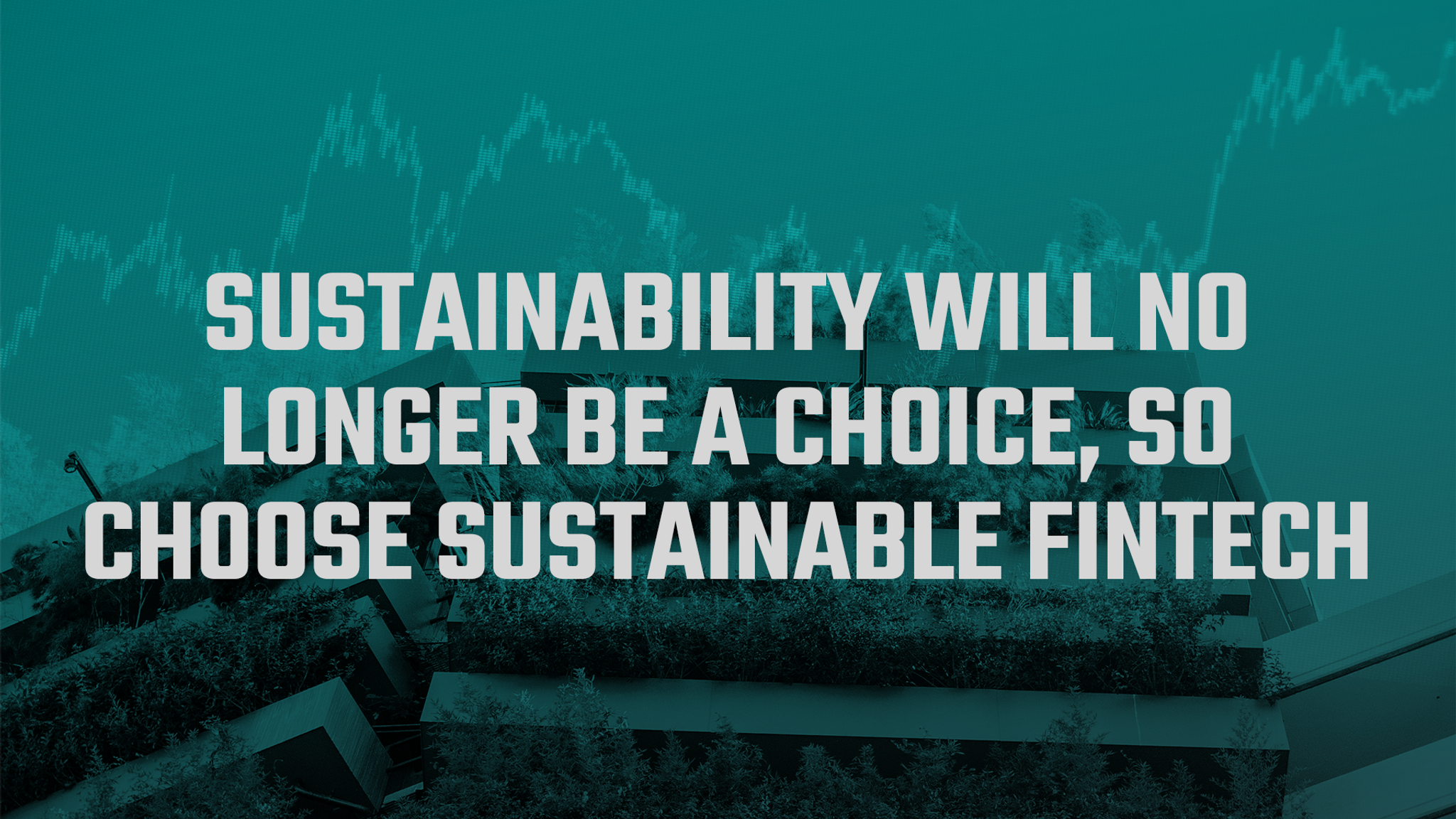Sustainability is no longer a choice, so choose sustainable fintech
Brian Collins
Published on

You may have missed it, but the recent report from the Intergovernmental Panel on Climate Change made for bleak reading. No inhabited region is immune from the impact of global warming. Almost half of the world’s population lives in a “highly vulnerable” area. Even if warming levels don’t increase – and they likely will – millions will face flooding, drought and food shortages.
It’s easy to dismiss news about climate change as something we’ve all heard before. It’s also easy for an overload of information to lead to inertia. If we’re doomed no matter what, why bother?
Obviously, the above is a flippant reaction and many organisations are increasingly putting climate – as well as sustainability more broadly – to the front of their business plans. There are still “net-zero skeptics”, however, who may question the pace of change and the size of the adjustments needed as we shift to a low-carbon economy.
While everyone is entitled to their opinion, one simple fact counters the naysayers – it will very soon no longer be a choice whether your business is sustainable or not.
Stakeholders are increasing pressure on institutions to integrate sustainability factors. Many regulators have already confirmed the introduction of initial measures mandating certain companies to make climate disclosures. It’s likely these will only broaden in scope.
The direction of travel is clear. Even companies already making climate-related disclosures are facing scrutiny on the accuracy and transparency of these. Indeed, the regulators themselves are being pressured to up the ante. Sustainability won’t be a choice. Embracing it will become a prerequisite of a licence to operate.
Against this backdrop, sustainable fintech will undoubtedly play a role in helping businesses toe the climate-focused regulatory line. Startups, for example, could help legacy financial institutions make sense of sustainability data and rating systems, allowing them to assess their internal climate risk in line with central banks’ expectations.
Fintech aimed at consumers can also play a critical role here. Consider technology that allows individuals to track the carbon emissions generated by their purchases. Startups like Epic Impact are increasingly providing consumers with methods of monitoring their own carbon footprint while also being able to assess which companies are conducting business ethically.
If businesses are able to access this data in some way, it could help better quantify Scope 3 emissions – i.e. the emissions generated within an organisation’s supply chain and by its products and services.
While few regulators have asked for detailed Scope 3 disclosures to-date, these will inevitably be requested in some format in the future. Indeed, a lack of such disclosures has been used to critique the net-zero plans of some of the world’s largest corporates already.
In short, as regulators increase demands on corporate, taking climate considerations into account will no longer be an option but a requirement of doing business. In such an environment, there is a huge opportunity for sustainable fintech to serve both companies and consumers.
